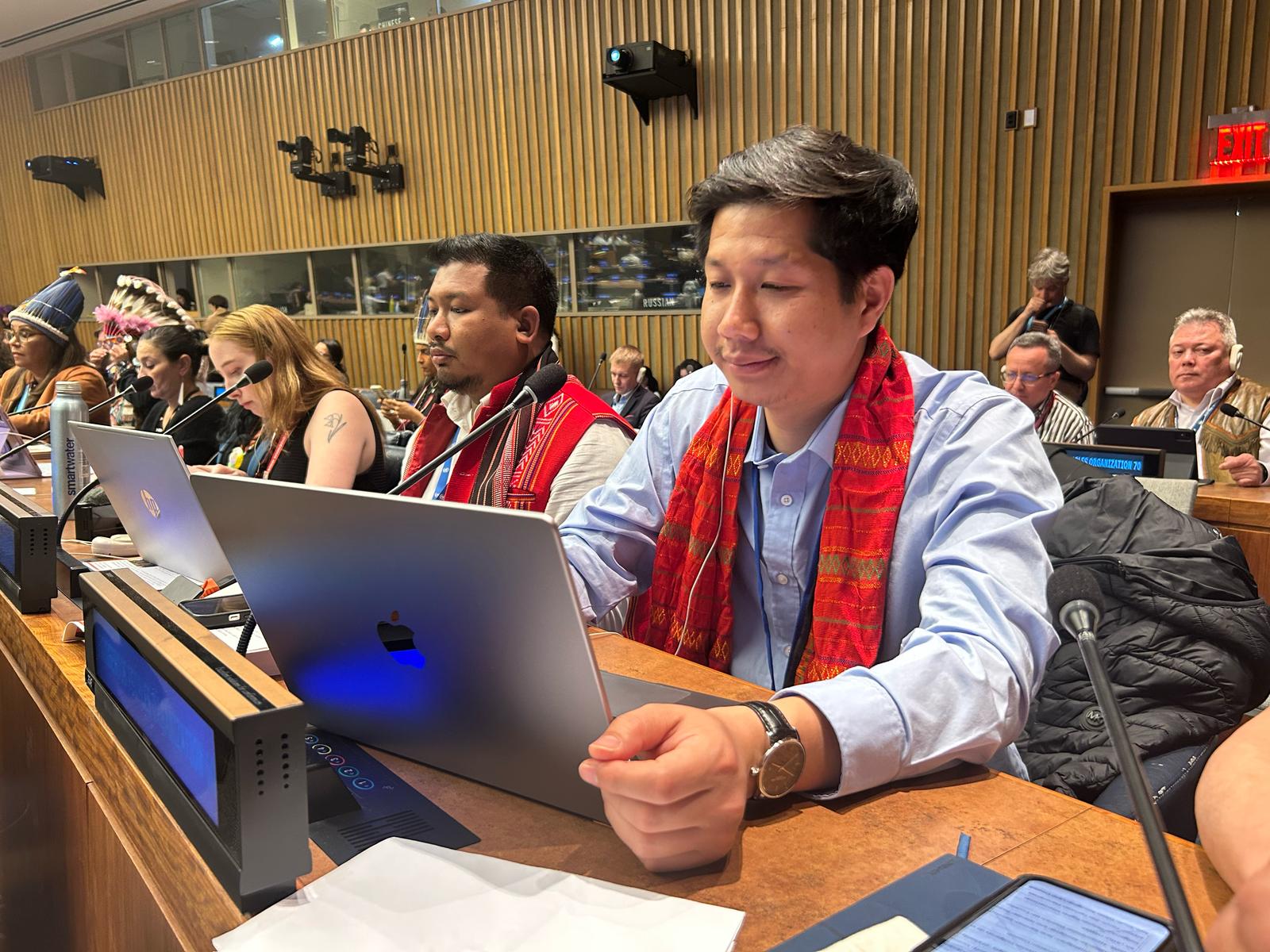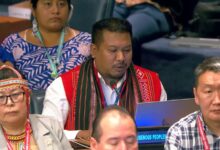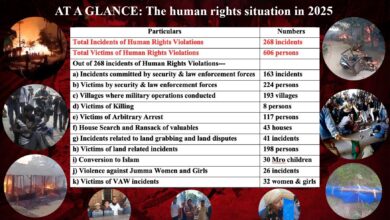Manojit Chakma Urges Swift Implementation of CHT Accord at UNPFII

IPNEWS International Desk,New York: At the 24th session of the United Nations Permanent Forum on Indigenous Issues (UNPFII), held at UN Headquarters in New York, Manojit Chakma, representative of the Parbatya Chattagram Jana Samhati Samiti (PCJSS), delivered a compelling statement on April 25, 2025. Speaking under Agenda Item 4-“Discussion on the six mandated areas of the Permanent Forum (economic and social development, culture, environment, education, health and human rights), with reference to the UN Declaration on the Rights of Indigenous Peoples (UNDRIP) and the 2030 Agenda for Sustainable Development”—Chakma called attention to the stagnant state of Indigenous rights in Bangladesh’s Chittagong Hill Tracts (CHT).
In his remarks, Mr. Chakma emphasized the transformative potential of UNDRIP and the 2030 Agenda for the Indigenous peoples of the CHT. However, he pointed out that their impact remains limited in the region due to governmental neglect, religious fundamentalism, societal misconceptions, and military interference.
“All six mandated areas of the Permanent Forum have been obstructed in the CHT,” he said, “largely due to the lack of government action, poor public understanding, and persistent pressure from religious extremists and military forces.”
Highlighting the long-standing challenges, Chakma criticized the government’s failure to fully implement the 1997 CHT Accord, even 28 years after it was signed. He noted that although the signatory government has since left power, the current Interim Government—led by Nobel laureate Professor Dr. Muhammad Yunus—has both the knowledge and the opportunity to advance Indigenous rights and fulfill the commitments of the Accord.
Referencing a violent incident on January 15, 2025, Chakma described how Indigenous demonstrators were attacked by Bengali settler group “Students for Sovereignty” while protesting the removal of the term “Indigenous” from a national textbook. At least 22 Indigenous individuals were injured, including seven seriously. While the Interim Government has taken steps by arresting five suspects (three of whom were released on bail), Indigenous communities remain wary, given a history of impunity under previous administrations.
He acknowledged a positive development: the reconstitution of the CHT Accord Implementation and Monitoring Committee in January 2025 by the current government. However, Chakma expressed concern that no meetings of the committee have been held in the three months since its formation.
Mr. Chakma urged the UN to engage directly with the Interim Government and offer guidance for accelerating the implementation of the CHT Accord. “If fully realized,” he said, “the six mandated areas could drastically improve the livelihoods of the Jumma peoples and reflect international human rights standards.”
The 24th session of UNPFII, which began on April 21 and will continue through May 2, 2025, features broad participation from Indigenous representatives across Bangladesh. Delegates include Pallab Chakma of the Kapaeeng Foundation; Chanchana Chakma, Augustina Chakma, Manojit Chakma, and Mong O Prue of PCJSS; Toni Chiran of the Bangladesh Indigenous Youth Forum; and Bijubi Chakma of the CHT Indigenous People’s Council of Canada.
A 6-member delegation from the Government of Bangladesh is also in attendance, including CHT Affairs Ministry Secretary Abdul Khalek, CHT Development Board Chairman Anup Kumar Chakma, and intelligence agency representatives.
Manojit Chakma’s address served as a timely and urgent reminder of the unfinished promises to the Indigenous Jumma people-and a call for the global Indigenous rights community to stay engaged.



